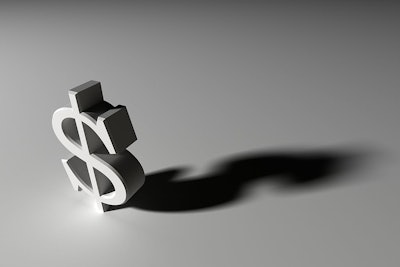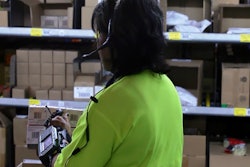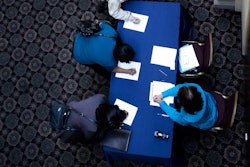
Nearly six out of 10 American consumers say they are justified in expecting better service to accompany a minimum wage hike to $15 an hour. But an even greater number, seven out of 10, doubt they’ll get it.
Consumer attitudes about how raising the minimum wage to $15 an hour will affect their overall shopping experience were uncovered in a COLLOQUY survey of 1,500 Americans nationwide. COLLOQUY is a leading provider of loyalty marketing research. The current federal minimum wage is $7.25 an hour.
COLLOQUY asked consumers if they would expect better customer service and a better overall experience if the minimum wage were raised to $15 an hour. Also asked: If your favorite retailer raised its minimum wage to $15 an hour, would you actually receive better service and have a better overall experience? Here are some key results:
- 59 percent of all respondents said they are justified in expecting to receive better service and a better overall experience.
- 69 percent of all respondents said they would not actually receive better service or have a better overall experience.
- 71 percent of men said they would not actually receive better service, versus 66 percent of women.
- 66 percent of young millennials in the 18-24 age group said they are justified in expecting better service, versus 59 percent in the same age group who said they would not actually receive it.
- 60 percent of older millennials in the 25-34 age group said they are justified in expecting better service, versus 69 percent who said they would not actually receive it.
Raising the minimum wage is a front-burner controversy. On Nov. 29, 2016, the fourth anniversary of the “Fight for $15” campaign, retail employees and other workers staged demonstrations in U.S. cities nationwide with demands for a $15-an-hour minimum wage. In the November elections, four states approved minimum wage hikes.
“The minimum wage issue is of keen interest to marketers who believe in the power of the front-line employee to engage the customer and create an experience that sets a brand apart from competitors,” says COLLOQUY Editor-in-Chief Jeff Berry. “Brands may see an opportunity to surprise and delight customers based on the skepticism shown by so many in the survey about actually receiving better service.”
In other key COLLOQUY survey results:
- 68 percent of women said they are justified in expecting better service with a $15 an hour minimum wage, versus 59 percent of the general population and just 50 percent of men.
- 38 percent of the general population said raising the minimum wage to $15 an hour would lead to retailers adding more automation, resulting in poorer service and a poorer overall experience.
- 44 percent of men said raising the minimum wage to $15 an hour would lead to retailers adding more automation, resulting in poorer service and a poorer overall experience, versus 33 percent of women.
- 38 percent of the general population said they support raising the minimum wage to $15 an hour.
COLLOQUY’s consumer survey was conducted between Oct. 17-21, 2016. The nationwide survey of 1,500 U.S. consumers has a margin of error, which measures sampling variability, of +/- 2.5 percentage points at the 95 percent confidence level.













